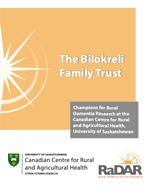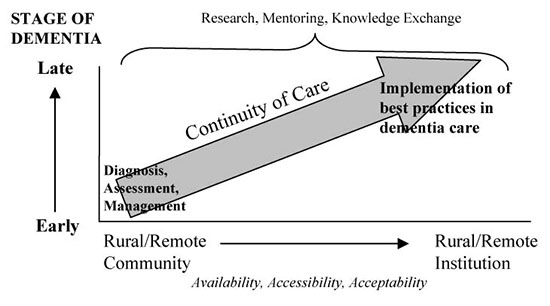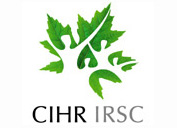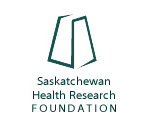2003 - 2009
Strategies to Improve the Care of Persons with Dementia in Rural and Remote Areas (2003-2009)
Principal Investigator: Dr. Debra Morgan
Research Program: Canadian Institutes of Health Research (CIHR) New Emerging Team (NET)
CIHR created the New Emerging Team program to facilitate the development of new interdisciplinary research teams, promote cross-disciplinary research, and to train and support new researchers. Our NET research program, which focused on rural and remote dementia care, included three initial core projects (below). Numerous related projects have been conducted by team co-investigators and graduate students. The initial core projects were:
- Development and evaluation of a one-stop telehealth-assisted interdisciplinary Rural and Remote Memory Clinic
- Use of healthcare services by individuals with dementia and their caregivers in rural vs. urban settings
- Evaluation of the Enhancing Care Program in two rural long-term care facilities
The New Emerging Team Grant that supported the initial development of our research team and the Rural and Remote Memory Clinic was awarded through the Canadian Institutes of Health Research (CIHR) with funding support from University of Saskatchewan, Saskatchewan Health Research Foundation (SHRF), Alzheimer Society of Saskatchewan, and Telehealth Saskatchewan (in kind). Since 2009, the Rural and Remote Memory Clinic has continued providing services to the people of Saskatchewan through funding from the Saskatchewan Ministry of Health and bridge funding from Saskatoon Health Region.
2009 - 2015
Healthcare Delivery Across the Continuum for Rural and Remote Seniors with Dementia (2009-2015)
Principal Investigator: Dr. Debra Morgan
Research Program: CIHR-SHRF Applied Chair in Health Services & Policy Research
The CIHR Applied Chair program focuses on the development of an integrated program of research, training/capacity development, and knowledge exchange. Our team’s research program has three main objectives focusing on dementia care in rural and remote areas:
- Community-Based Care: To develop a model for improving access to early assessment, diagnosis, and care of individuals with dementia in rural and remote areas
- Facility-Based Care: To support rural long-term care facilities in implementing best practices in dementia care
- Establishment of an international centre of excellence for rural and northern dementia care
Funding for this Applied Chair was awarded jointly from CIHR Institute of Health Services & Policy Research and the Saskatchewan Health Research Foundation (SHRF).
This YouTube video produced by SHRF highlights Saskatchewan health researchers, including Dr. Debra Morgan.
2014 - 2019
Canadian Consortium on Neurodegeneration in Aging [CCNA] - Team 20 (2014-2019)
Nominated Principal Investigator: Dr. Howard Chertkow
Lead, Rural Focus - Team 20: Dr. Debra Morgan.
Co-leads, Indigenous Focus - Team 20: Dr. Kristen Jacklin & Dr. Carrie Bourassa
Research Program: Canadian Institutes of Health Research (CIHR) in partnership with the Saskatchewan Health Research Foundation (SHRF).
The CCNA is a 5-year initiative (2014-2019) led by cognitive neurologist Dr. Howard Chertkow of the Lady Davis Institute at the Jewish General Hospital (McGill University). Launched by the federal government and the Canadian Institutes of Health Research(CIHR) in September, 2014, the CCNA addresses the growing prevalence of neurodegenerative diseases affecting cognition such as Alzheimer Disease and other dementias.
Dr. Debra Morgan co-leads Team 20 with Dr. Kristen Jacklin (Northern Ontario School of Medicine, Laurentian University) and Dr. Carrie Bourassa (First Nations University, SK). Team 20 focuses on rural and Indigenous issues in dementia care, with the rural focus led by Dr. Morgan and the Indigenous focus co-led by Drs. Jacklin and Bourassa. The rural and Indigenous research streams are distinct but address three common research areas in the CCNA quality of life theme: community-based primary health care (PHC), appropriate tools, and capacity building. Team 20 is funded by SHRF in partnership with CIHR from 2014 to 2019. More information about Team 20 projects is available.
2019 - 2024
Canadian Consortium on Neurodegeneration in Aging [CCNA] Phase II - Team 15 - Rural Dementia Care (2019-2024)
Lead - Team 15 (formerly Team 20 Rural): Dr. Megan O'Connell
Co-lead: Dr. Debra Morgan
Research Program: Canadian Institutes of Health Research (CIHR) in partnership with the Alzheimer Society of Canada, the Saskatchewan Health Research Foundation (SHRF), the Centre for Aging and Brain Health Innovation (CABHI), and Brain Canada.

The CCNA Phase II brings together over 350 researchers across 19 teams, including CCNA Team 15 Rural led by Dr. Megan O’Connell and Dr. Debra Morgan. Team 15 has two streams of research:
(1) Rural and Remote Memory Clinic-interventions or RRMC-i, a novel model of remote healthcare in which a PhD level Clinical Psychologist delivers a suite of interventions via Telehealth [Lead: O’Connell]. Remote interventions include cognitive rehabilitation, cognitive behavioral therapy for insomnia (CBTi) adapted to dementia, psychological consequences of driving cessation, social inclusion intervention, Indigenous caregiver support, and an app for spousal caregivers of persons living with atypical, young-onset dementias (RuralCARES).
(2) Sustaining, spreading, and evaluating the impact of four rural memory clinics established in southeast Saskatchewan in CCNA Phase I [Leads Debra Morgan and Julie Kosteniuk]. Several research projects related to the rural memory clinics are underway.
2020 - 2024
CIHR Operating Grant - COVID Pandemic Funding
Dr. Debra Morgan (Co-Investigator) and Dr. Megan O'Connell are Saskatchewan collaborators on a grant held by Dr. Isabelle Vedel at McGill University titled:Improving the care of older adults living with dementia in the community across Canada during the COVID pandemic: a mixed methods study to inform policy and practice (COVID-19).
This works examines how people living with dementia are disproportionally affected by the COVID-19 pandemic. With study partners in Quebec, Ontario, Alberta, Saskatchewan and France, RaDAR team members are contributing quantitative and qualitative data to this project which aims to provide evidence-based recommendations to mitigate the negative impacts of the pandemic and the consequences on persons with dementia.
2022 - 2024
Dementia Supports in Rural Saskatchewan Funding Support![]() In 2022 the RaDAR team was awarded multi-year funding (2022-2024) from Dementia Supports in Rural Saskatchewan for developing more Rural Primary Health Care Memory Clinics in the province. Project plans include supporting Rural Memory Clinics in Esterhazy and Yorkton areas of the province.
In 2022 the RaDAR team was awarded multi-year funding (2022-2024) from Dementia Supports in Rural Saskatchewan for developing more Rural Primary Health Care Memory Clinics in the province. Project plans include supporting Rural Memory Clinics in Esterhazy and Yorkton areas of the province.
2016 - 2026
CIHR Foundation Grant – Design and evaluation of integrated primary health care practices for dementia in rural and remote settings. (2016-2026)
Program Leader: Dr. Debra Morgan
Co-Investigators: Dr. Julie Kosteniuk, Dr. Megan O’Connell, Dr. Andrew Kirk, & Dr. Norma Stewart
Program Experts: Acan Osman, B., Auer, S., Bourassa, C., Bracken, J., Dal Bello-Haas, V., Defontaines, B., Farmer, J., Holroyd-Leduc, J., Innes, A., Jacklin, K., Malloy-Weir, L., Miller, W., Mou, H., Osgood, N., Osman, M., Parrott, E., Quail, J., Rohatinsky, N., Seitz, D., Walker, J.
Research Program: Canadian Institutes of Health Research (CIHR) Foundation Grant.
The goal of the research program supported by the Foundation grant is to improve the quality of rural primary health care (PHC), and quality of life, among rural people with dementia and their caregivers. We will achieve this by collaborating with PHC teams in the province to create and sustain the Rural Dementia Action Research (RaDAR) PHC Dementia Toolkit. The RaDAR Toolkit will contain best practices to suit the needs and resources of PHC teams in different rural communities. Lessons learned here in Saskatchewan will be shared with our research partners internationally to support adaptation and spread of the RaDAR Toolkit to other rural areas.
In addition to funding from CIHR, support for the grant is also provided by the University of Saskatchewan, with in-kind support from Sun Country Health Region, and the Saskatchewan Centre for Patient-Oriented Research (SCPOR).
2015 - 2028
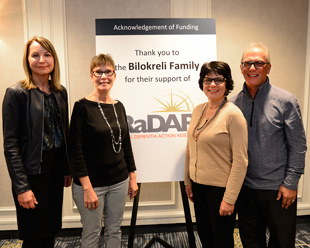
Bilokreli Family RaDAR Trust Fund
Since 2015 the RaDAR research team has appreciated the generosity of ongoing funding from a University of Saskatchewan RaDAR Trust Fund established with the support of the Bilokreli Family.
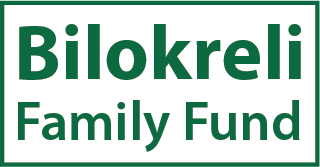
The Bilokreli family has rural roots in Theodore, Saskatchewan and personal experience with family members with dementia.
With a commitment of support through to 2028, the family trust has provided approximately $28,000 per year to support RaDAR initiatives.
The fund is administered by the College of Medicine, and more information about how to contribute to the fund is available through the College of Medicine's website or by contacting the research team directly.
The team has prepared a report (6 MB) highlighting the impact of the Bilokreli family's generous support.